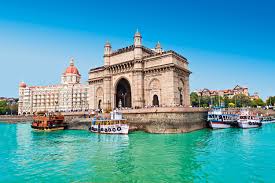The latest report by the Central Pollution Control Board (CPCB) has placed India's financial capital at the first place. Meanwhile, Delhi —long admonished for its dirty air—has something to be (relatively) happy about, as it is ranked fourth, behind Lucknow and Hyderabad.
- Mumbai breached the safe noise levels - 55 decibels during the morning and 45 dcibels during the night - consistently between 2011 and 2014.
According to the CPCB, the most common source of noise pollution is motor vehicles, while other sources like generator sets, office machines, aircraft, industrial and construction activities also contribute to increasing the noise level in the cities.
Tinnitus (ringing in the ears) can lead to forgetfulness, depression and even panic attacks.
- The CPCB report was compiled after collecting data from 35 locations in seven cities. The final results were inferred by averaging the location-wise day time and night time noise level.
Central Pollution Control Board (CPCB) :
- The Central Pollution Control Board (CPCB) of India is a statutory organisation under the Ministry of Environment and Forests (MoEF).
- It was established in 1974 under the Water (Prevention and Control of pollution) Act, 1974. CPCB is also entrusted with the powers and functions under the Air (Prevention and Control of Pollution) Act, 1981.
- It Co-ordinates the activities of the State Pollution Control Boards by providing technical assistance and guidance and also resolves disputes among them.
- The board is led by its chairman, who is nominated by the Central Government. The current acting chairman is Shri Arun Kumar Mehta .

No comments:
Post a Comment